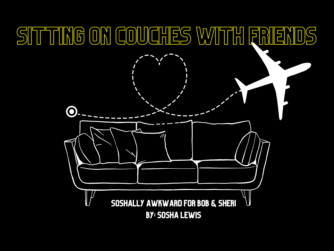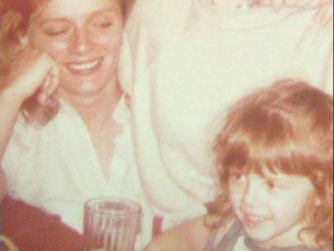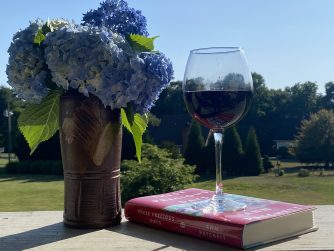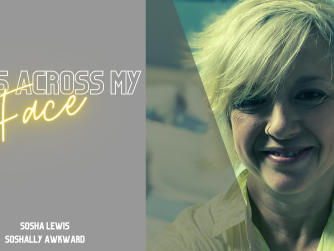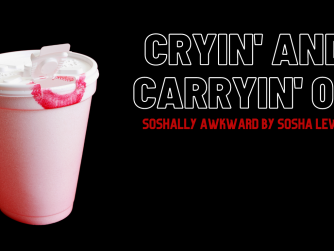The clock was bearing down on midnight of a day that already seemed 86 hours long when Tony and I crossed into Welch, the once booming mining town that many of the old-timers still called “Little New York” because of the confluence of cultures who converged to dig from the mountain bellies pregnant with coal. It, like the mama I had come home to bury, was now beat down and worn out from the years of abuse. My in-laws still lived in Welch and despite having moved away when I was seven it was the town that I considered home.
Despite the late hour I asked Tony if he would take the long way to his parents. He grabbed the back of his neck and gave it a slight squeeze. He was exhausted and I knew that he wanted nothing more than to flop down on the comfortable couch in his parents’ family room until he dozed off to the warmth of the fire, but he just gave me a slight smile and said, “Sure, babe.”
At the exit to the by-pass that would have taken us straight to Southwood, his parents’ neighborhood of sprawling red brick homes tucked back on steep yards – sturdy relics of the affluent days of the past – we stayed right so that we could circle up past the bank with the spinning sign that flashed the time and temperature, 11:36pm/31 degrees and the stone courthouse where Sid Hatfield, the Chief of Police of Matewan, WV, cousin of “Devil Anse” Hatfield and staunch United Mine Workers of America supporter was gunned down over an ongoing mining feud.
It was after Tony’s childhood home, perched above his grandfather’s insurance office, slid by on our right that the reason I had asked for the detour appeared. We had the one way main street of our hometown to ourselves so Tony slowed the car to a stop when we were lined up with the innocuous plate glass of my granddad’s former bar.
My granddad, Mike “Skomie” Yokosuk, a gruff, stocky, first generation American of Russian-Polish immigrant parents who liked to call people dummy, never painted the name of his bar on the storefront window. I believe it was officially named “The Sports Center”, but I’m not completely sure. It was simply referred to as “The Place”. And, he deliberately didn’t have the decades worth of soot kicked up by the rumbling coal trucks cleaned off that window because the bar was just a front, a clubhouse where old men retreated from their wives to trade insults and numb out the toil of the day, for the real business at hand. Skomie was a bookie, a pretty damn good one.
Upon entry, patrons were greeted with warped clapboard floors, smoke tinged paint that bubbled and cracked and two scales that for a penny would tell your weight and fortune.
Seven days a week my granddad could be found perched behind the long red formica bar, reading the paper and smoking a cigar as a baseball or football or basketball game blared from the small TV perched on a jerry-rigged ledge in the corner. I was a fixture at “The Place” from before I could walk. Most afternoons, I would hop off the school bus and hustle down the street, my ponytail bouncing behind me and my E.T. lunchbox swinging wildly at my side, so that I could empty ashtrays and fetch ice cold cans of Coors and Budweiser for the old men who stopped in every day.
My granddad’s father, Troheim, had travelled thousands of miles from Russia so that he could crawl into deep, dark, dirty holes drilled in the ground and extract black rocks. It was hard, unrepenting work. His son, with just enough America in him, spent one summer under the West Virginia mountains before declaring that the next time he wanted to be buried was when he was good and dead.
In the evenings, right before my granddad would place his bets to his mysterious friends in Cleveland, my gran, Wanda, a fiery, gorgeous, green-eyed dancer who loved Lucky Strikes and laying out in the sun slathered in baby oil and iodine, and I would carry a saran wrapped plate of steak, fried potatoes and pork and beans to him from our apartment that was just a couple hundred yards further down the same street.
Gran would usually just grab a fresh pack of Lucky’s and head back to the apartment, but I would fetch a frosty glass bottle of Coke from the cooler and a Snickers from behind the bar and settle in at the small table in the back where my granddad ate his dinner. We listened to the staticy police scanner and watched the enormous rats, those slick blobs that bloated their bodies by feasting on that garbage and human waste that floated down the Tug River that both fascinated and terrified me, scurry along the banks of the polluted Tug River.
I kept my pink and white bike complete with it’s flowered basket and sparkly streamers parked at “The Place”. Between the lunch and evening shifts, Skomie would lock up the place and take me to the big municipal parking lot behind our bar to help me practice my bike riding skills.
When I became a more confident biker, I would navigate the busy downtown streets to either pick up money someone owed my granddad or deliver money he owed them. The money was always in a brown paper bag that I secured in my bike basket. My mom had had the same job when she was younger. She said that she always skimmed a couple of bills off the top because she knew that because of the unspoken honor code between the bookie and his long term gamblers, they rarely counted it. I did not know this and even if I had, I have always been way too lawful and guilt-ravaged to even think about doing that. I just smelled it.
After a couple of minutes of idling on the deserted street, staring into a darkened window that hadn’t been part of my life in almost 20 years, I said, “Let’s go. I wanna see your mom.”
Despite Sunday turning to Monday by the time we pulled into my in-law’s driveway, the lights in the family room were still on. I knew they would be. As soon as I walked in, Mary, my mother-in-law, the one who had taken me in as a broken eighteen year old and loved me back from the edge of self-implosion, crossed the room and wrapped me in a hug. I collapsed into her shoulder while the men in the room stared at their feet and attempted to avoid the sound of the hearts of women they loved breaking. When we parted from our embrace, she placed her hand on my stomach and said, “How’s my grandbaby?”
I have never been a skilled sleeper and that was not going to be the night that I would get some much needed practice. After getting the covers wrapped around me like a burrito, I gave up on resting. I padded downstairs, wrapped up in a blanket from the back of the couch and scrolled through the messages on my Blackberry. I was overwhelmed by the outpouring of kindness from people from my present and my past, but I couldn’t make myself respond – not yet. I would respond eventually, but by not answering the messages, it was as if I could suspend the cold, harsh reality of why those messages were there.
It wasn’t long until the house started to stretch itself awake. Mary started coffee and when I waved her off when she asked if I wanted breakfast, she made me an English Muffin, and gently reminded me with a quick glance to my mid-section that I needed to eat “a little something.” My father-in-law, Lenny, gave me a one-armed hug that was equal measures awkward and loving, much like him, on his way out to work. Tony, who was normally up before the sun and out the door by 6:00am, slept in a little.
Considering the day that we had to tackle, I was glad that one of us was getting some rest. Less than 10 hours after we had arrived at my in-laws, the only place I envisioned when I thought of home, it was time for us to leave again…to go deal with all the ridiculous details of life that death brought about.
The day was dishwasher grey and it was the type of cold that seems to penetrate your bones and then make them home. We winded our way back up the skinny, treacherous Route 52 passing whole communities experiencing the kind of broken discardedness that only generations of being abjectly ignored can create.
The porches sagged, the yards were worn to nothing more than dirt patches by hungry dogs chained to trees and an occasional stray chicken. Despite the frigid temperatures old men pulled on chaw stained flannels and sat out on their porches with legs spread out to make room for their bellies that hung well below their knees, while their sons and grandsons zipped up their puffy coats and headed down to the outskirts of the gas station parking lot to either hustle or be hustled.
Why did these yellow-eyed, diabetics get to live while my mama was dead? Why weren’t they going “up the road”, as people from Welch said when they were headed to Bluefield, to pick out a casket.
My mama was better than them. We were better than them.
But, we weren’t.
And, that realization was almost as painful as knowing the one who brought you into the world was no longer in it.
My family had been just successful enough, just smart enough and just pretty enough to fool just enough, but today we had our reckoning.
This article was written by a guest blogger. The opinions expressed here are those of the writer and do not reflect the opinions of Bob Lacey, Sheri Lynch or the Bob & Sheri show.


